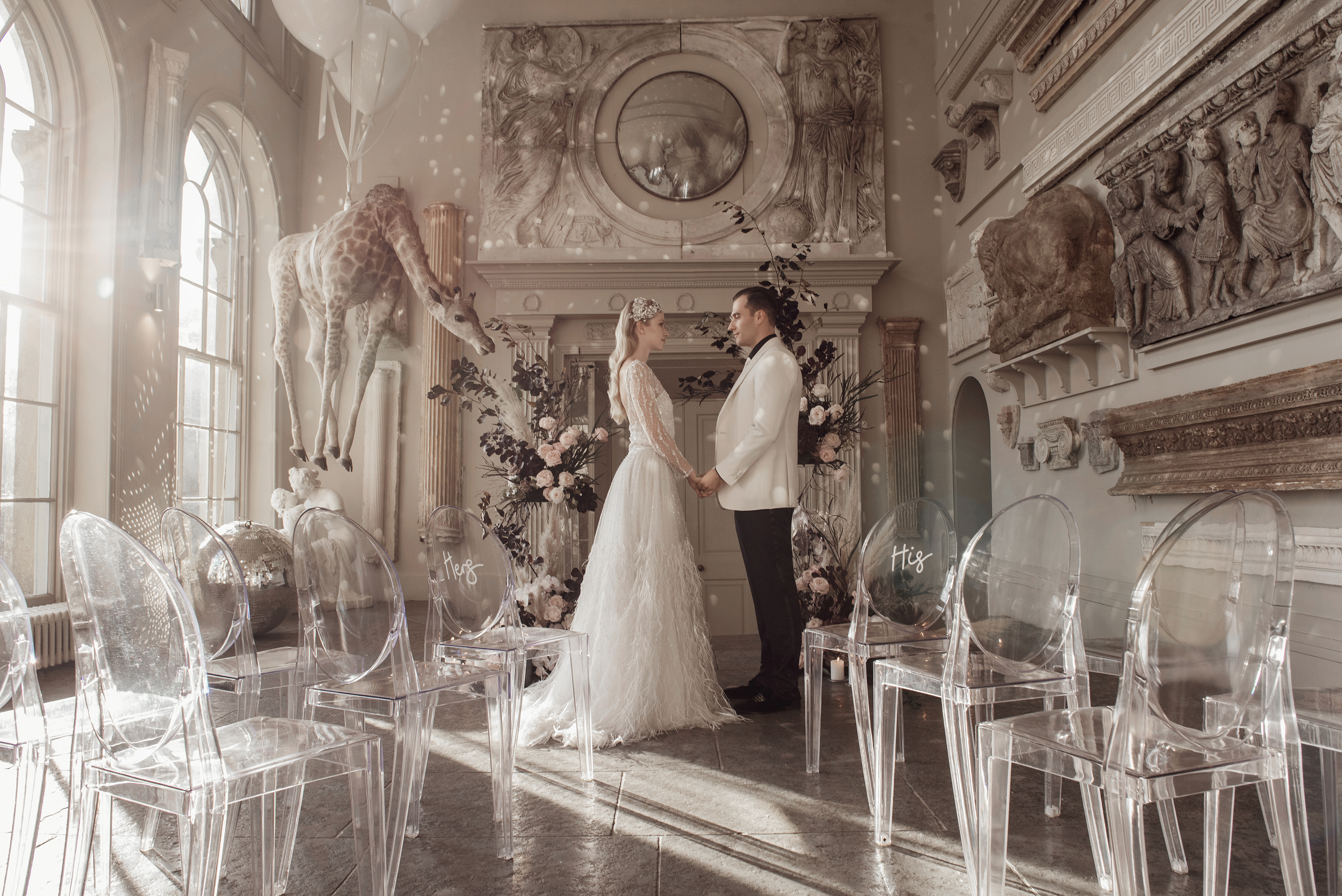A comprehensive guide to the marriage legalities, processes, and paperwork for civil, religious, and humanist wedding ceremonies in the UK, for both UK and foreign nationals, and for both straight and same-sex couples.
The UK offers an absolutely staggering variety of gorgeous wedding backdrops, and is home to some exceptionally talented wedding suppliers – so if you’re looking to have an extraordinary wedding celebration, you’ve definitely come to the right country. Whether you want a modern soiree in an art museum, romantic floral wedding ceremonies in a medieval manor, an adventurous cliffside elopement, or anything in between – we got you.
Before we get caught up in manor houses and floral clouds, let’s take some time to review the legalities of getting married in the UK, just so we can make sure you tie that knot nice and tight. As with any legal commitment, there are hoops to jump through and paperwork to sort, but – if you have all your facts straight – this can be a painless and stress-free process.
So, let’s start from the beginning. UK law recognizes both civil and religious weddings, but you can also choose to have a non-legal blessing or humanist ceremony. For example, the two of you could sign the paperwork at your local registry office or, if you’re not a resident, in the country where you live – and then have a blessing in front of your loved ones at your official wedding reception. That is to say, your wedding ceremony / reception doesn’t technically have to be the same day as the official legal marriage.
The basic requirements for getting married legally in the UK are the following: both parties should be single, divorced, or widowed; both parties should be above 16 years old and not related to one another; and at least two witnesses must be present. This means that you, your partner, and your two witnesses must sign the marriage register or civil partnership document on the day of the legal ceremony. This applies to everyone – whether UK nationals or foreign nationals.
In the sections following I’ll be going into much more detail on:
- Civil ceremonies
- Religious ceremonies
- Humanist ceremonies
- Wedding ceremonies in Scotland and Northern Ireland
- Same Sex Weddings
- Extra Considerations for Foreign Nationals
- and Legal Wedding Costs
I’ve researched each of the above and created a summary here for you designed to be as helpful as possible – but of course each couple’s situation will be slightly different, and it’s very important for you to contact the relevant legal authorities for confirmation. This should serve as a guide of the considerations involved, but do check which constraints apply to you or don’t. I’d love to support you in this, so do get in touch if you’d like any help planning or researching your wedding in the UK.
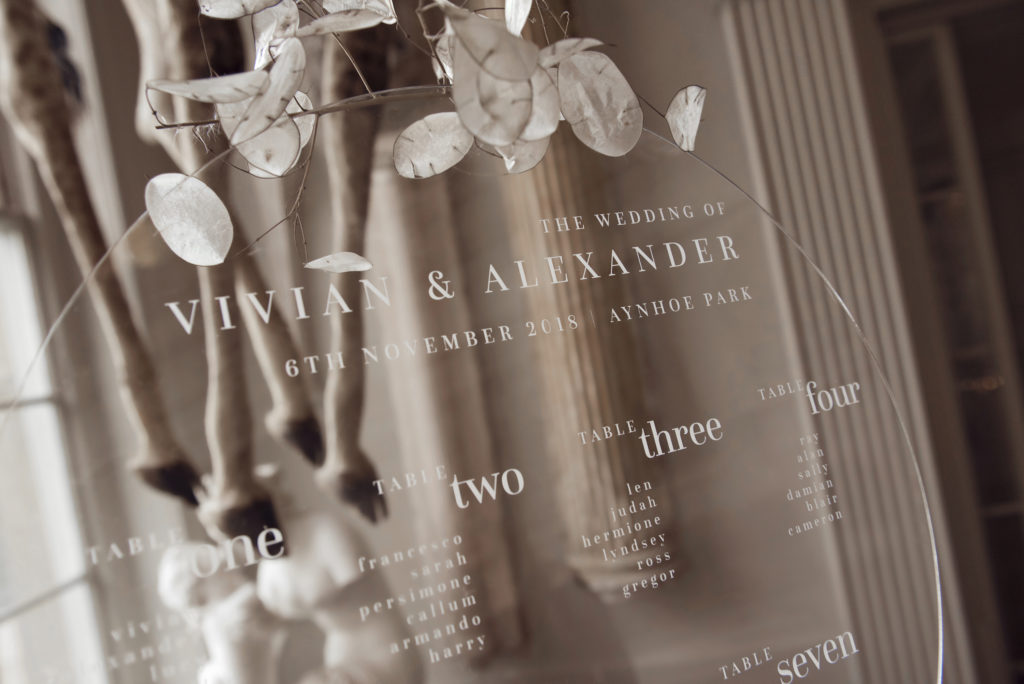
Civil Ceremonies
Let’s start with some definitions – what do I mean by civil ceremony? Generally speaking, a civil ceremony is a marriage without any religious context but with full legal recognition.
Civil ceremonies can take place at a register office or what is called an “approved venue”. In England and Wales it’s places, not people, that are licensed for marriage, so legally-binding ceremonies must happen in a venue that is a permanent structure with a roof, approved for marriage and accessible to anyone. If you had your heart set on an outdoor ceremony, this doesn’t mean giving up the dream: some venues have licensed areas in the grounds with a roof such as a summerhouse or a gazebo which make for beautiful outdoor options. You can’t, however, marry on the beach or in the middle of the forest in the absence of a licensed structure. Have a look at this list of local register offices and this list of approved premises (for civil marriages and civil partnerships) in England and Wales.
There are no longer any time restrictions on civil ceremonies in England and Wales, so you can say your vows whenever you want, depending solely on your venue and celebrant’s availability. Civil ceremonies in the UK can happen at any time of year as well, so you have full flexibility to choose the date that works best for you.
So far, so good – let’s take a closer look now at the steps you need to take in order to have a legally-binding ceremony of this kind. For civil marriages, both parties must have lived in a registration district for at least seven days immediately before giving notice of marriage. You would then need to give least 29 days’ notice at the register office local to that residency address (so in the same district as where you’ve been resident), so that your notice can be publicly displayed. You and your partner will need to give notice separately if you live in different registration districts, though you wouldn’t need to do this on the same day. You need to include details of where (though not necessarily when) you intend to get married. You also need to take proof of your name, date of birth, nationality (for example passports, birth certificates, or national identity cards), your home address (such as a valid driving license, bank statement, utilities or council tax bill, or tenancy agreement), your entry visa (if applicable), and the UK address you are using to give notice. You may also both need a passport-sized photograph. If you’ve been divorced or widowed, you will need to bring the “decree absolute” or “final order”, or the death certificate of your former spouse. You need to bring proof of your divorce, annulment or dissolution if it was granted outside of the UK, Channel Islands or Isle of Man, and pay a fee for them to be checked by the local or general register office.
Having satisfied the residence requirements for giving notice, and once the notice period of at least 28 days has passed, you can then get married at any register office or approved venue of your choice in England and Wales without having to set up residence in that district (so the district you get married in doesn’t have to be the same district where you gave notice). The only requirement is that marriage must take place no later than one year and no sooner than 16 working days from the date on which notice was given.
You don’t need to exchange formal vows for a civil partnership, but you can do so if you wish. In fact, you can write your own vows, as long as you include the statutory declarations. When choosing your readings and music, keep in mind that there must be no reference to religion for either of these, and it will all need to be approved by your registrar before the day. Some are stricter than others, so make sure you have that conversation as early as possible in your planning!
This government guide to marriages and civil partnerships has more information on the application process.
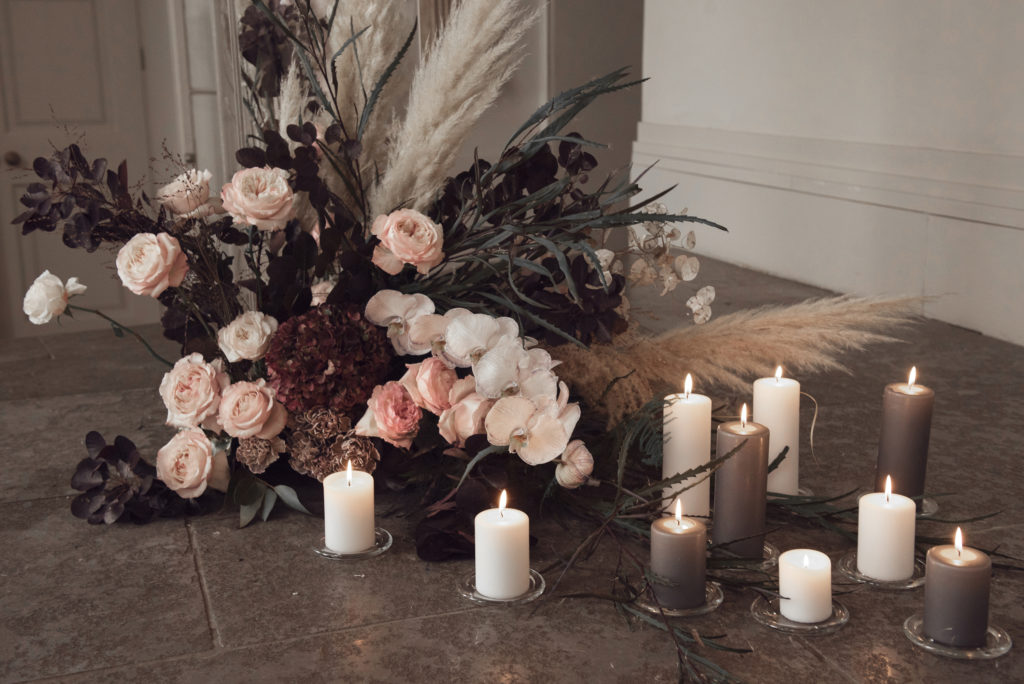
Religious Ceremonies
The basic eligibility criteria for having a religious wedding in the UK are the same as for civil ceremonies, but the venue needs to be a church, chapel, or any other registered religious building.
You can currently legally marry in the UK by having a Church of England, Church in Wales, Roman Catholic, Jewish or Quaker ceremony. For all other religious ceremonies, make sure to ask your celebrant, as you may have to arrange a civil ceremony as well in order to be legally wed.
At one time, you could only marry in a Church of England parish church in the area where you or your partner lived, but thankfully the rules changed in 2008. Now, as long as certain conditions are met, you can ask to marry in any parish where you have a connection as long as the vicar approves. With the Church of England, you can marry at a church that isn’t your local parish if you have a certain kind of connection to it, such as family ties, you were baptised there, you regularly attended services there for at least six months, or your parents were married there. For a Catholic wedding, your local pastor or bishop may need to give permission for you to marry in another parish, and the priest of the parish you wish to marry in will be able to let you know if he has any attendance requirements (for example, attending services regularly for 6 weeks).
For religious ceremonies, you and your partner will still need to give notice – but how this happens will depend on the church you’ve chosen.
For a Church of England ceremony, you must announce your intention to marry through the reading of banns in the three/four months leading up to the day. If you haven’t given enough notice for banns to be read, you may need a Special Licence, Common Licence or a Superintendent Registrar’s Certificate, which you can apply for via your vicar. In general, if you’re getting married with the Church of England, there is no need to give notice at the register office as well.
For a Roman Catholic wedding, you need to follow the steps for giving notice at the registry office as if it were a civil ceremony AND you’ll need to have banns read in church during the three months prior to your wedding date. You will also need to be confirmed if you aren’t already, and attend pre-marriage preparation courses if your priest asks you to. If one of you isn’t Catholic, the priest of your parish will apply to the bishop for permission (if partner is baptized) or for dispensation (if not baptized).
In terms of documentation, couples need to show the Church of England vicar their passport as proof of nationality, or failing that, ask your vicar which other documents he or she will accept. If either of you are divorced, you will need a copy of your decree absolute. You might also need to provide proof of connection to the church, such as your parents’ marriage certificate. For a Catholic wedding, you will need a baptism certificate dated within six month prior to the wedding (get in touch with the church where you were baptised if you need a new copy), a confirmation certificate, a letter of freedom, and proof of ID. You will need to send you priest the documents provided to you by the register office after the notice period has ended.
Religious ceremonies may have restrictions related to specific dates, depending on the faith, and timing will also depend on the church’s schedule. For Church of England ceremonies Easter and Advent (the lead-up to Christmas) are strongly discouraged – and if you do get agreement, there may be restrictions on certain hymns and floral decorations. In the Catholic Church, you can’t generally marry during Lent (the 40 days before Easter) either. Jewish couples can’t get married between Passover and Pentecost, during three weeks between July and August and on the Sabbath (Saturday) unless it’s two hours after sundown.
The content of the ceremony will be much more fixed in the case of a religious ceremony, and will depend on the faith. You can’t typically say your own vows, and instead must exchange formal wording as instructed by the priest or vicar marrying you. Hymns and readings will usually need to have a religious context, although some priests are stricter than others on this front – just make sure you ask with plenty of notice, so you know where you stand and what your options are.
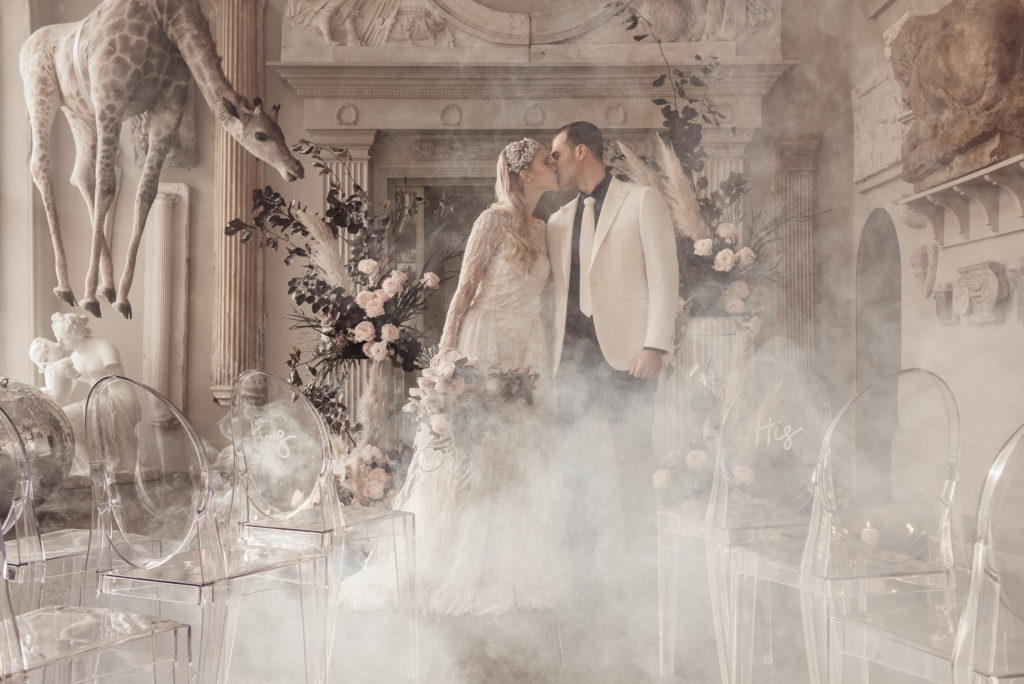
Blessings & Humanist Ceremonies
Humanist ceremonies are a wonderful option for couples looking to have a secular ceremony with more freedom to personalise their vows, readings, music, and structure. It’s not currently legally binding in England and Wales, although it is legal to have a humanist ceremony in Scotland.
So what are they exactly? In essence, a humanist ceremony is whatever you want it to be. It’s a way of standing up in front of your loved ones and making a public declaration of your commitment to each other, with no specific rules and no association with a religious faith. It’s conducted by a celebrant, who will work closely with you to create a meaningful ceremony that is right for you. There’s no requirement of any specific vows being said, and you can include any rites or rituals that you feel reflect your union and/or your spirituality (if any!). This may seem like a bit too much freedom, and if you don’t know where to start, remember that humanist celebrants are a great source of ideas, advice, and suggestions. There are no requirements or limits on length, date, time of year, and so on.
This kind of ceremony is available to all, both straight and same-sex couples, and you don’t have to yourself be a “humanist” in order to marry this way.
You can have your humanist ceremony anywhere, as long as your celebrant is happy to join you there – but do keep in mind that a religious building or register office is unlikely to welcome this kind of ceremony, understandably. Humanist ceremonies don’t have to take place in a structure that has a fixed roof and a licence – which means you can get married on a secluded beach, in the midst of a field of wildflowers, or anywhere that means something to you!
Because a humanist isn’t legally binding in England and Wales, you will also need to look into having a civil ceremony. So for example you could make it legal with a civil ceremony with close family a few days before your wedding day – and then have a humanist ceremony in front of all your guests. Venue allowing, you could also look at having both ceremonies on the same day.
Finding the right celebrant for you is particularly important for this kind of ceremony, as they will work very closely with you both to design a ceremony inspired by your story. Speak to your wedding planner if you’re thinking of going down this route, so he or she can suggest some celebrants for you. If you’re planning on getting married in Wales, Northern Ireland or England, you can also take a look at Humanist Ceremonies™, which is the network of non-religious celebrants trained and accredited by Humanists UK. If you’re in Scotland, have a browse on Humanist Society Scotland. Do keep in mind that humanist celebrant fees are typically higher than the fees involved in a civil or religious ceremony, so this option does require having scope for that in your budget.
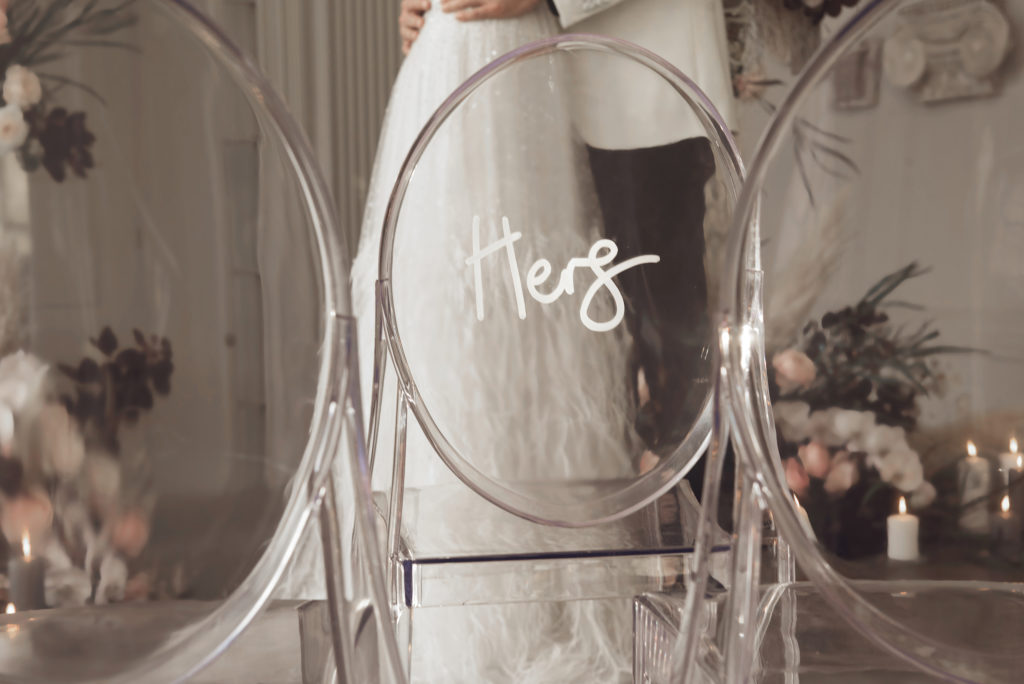
Wedding Ceremonies in Scotland
In Scotland, you can have a civil, religious, or “belief” ceremony, all of which are legally binding – humanist included. The eligibility criteria are similar to those for England and Wales: you must be aged 16 or over, in an opposite sex or same sex relationship, not married or in a civil partnership with someone else, not closely related (they have a list of relatives you can marry, and those you can’t), and also capable of understanding what marriage means and of consenting to marriage.
A civil marriage can take place at a registry office or any approved venue – a list of which can be obtained from the General Register Office for Scotland. If you’re hoping to apply for temporary approval for a venue of your choice (for example, your family home), you can contact your local authority for more information. You would normally give notice to marry in the district you’re tying the knot in, not where you live – this means you don’t have to be a resident of Scotland to get married there. The civil ceremony must however be performed by a registrar or an authorised assistant registrar.
A religious or humanist marriage can take place anywhere and venues don’t need to be approved, as long as the minister/religious official/celebrant agrees. Unlike in England and Wales, it’s the celebrant, not the venue, that’s licensed for marriages, which is why there is much more freedom regarding ceremony locations. In a religious wedding, a minister, clergyman, pastor, priest or other person approved to do so under the Marriage (Scotland) Act 1977 must perform the wedding.
Once you’ve decided you want to marry in Scotland, you will both need to complete and return a Marriage Notice form (which tells the local registrar you want to marry). This form and any other documents must be returned to the registrar at least 29 days before your wedding. If you’re having a religious or belief ceremony you’ll also need to collect the ‘marriage schedule’, which is a form you sign during your wedding ceremony. You can collect this from 7 days before your wedding, and it will need to be either you or the person you’re marrying collecting it in person. This marriage schedule needs to be returned to your local registrar within 3 days of your ceremony.
You can find out more about processes and criteria for getting married in Scotland from official sources here and here.
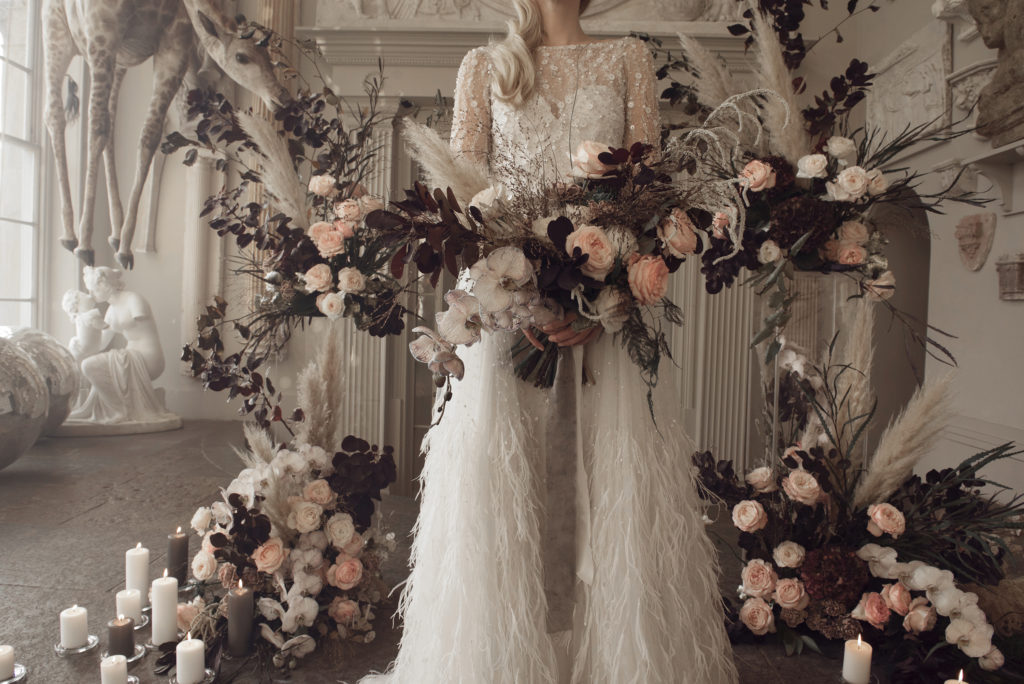
Wedding Ceremonies in Northern Ireland
Couples marrying in Northern Ireland have a choice of either a religious ceremony or a civil ceremony conducted either by a registrar or a Humanist celebrant. The initial arrangements are the same for both types of marriage. The eligibility criteria are the same as for Scotland, with the added restriction that the two partners cannot be of the same sex.
Like for Scotland, couples do not need to have been resident in Northern Ireland before getting married.
Both partners have to give notice of marriage in their local Register Office, whether or not they wish to marry in that district. Non-resident couples must also submit completed marriage notice forms and all documents to the Registrar of Marriages in the district where the marriage is to take place. The normal timeframe for giving notice is eight weeks, and can be given in person or by post (worth noting that the absolute minimum is 28 days, but they advise against leaving it this late!). In Northern Ireland, the marriage license is known as “marriage schedule”. If you have chosen a Humanist celebrant, you must also fill out a celebrant application form and be approved to conduct your ceremony before completing your marriage notice forms. Marriage must take place within twelve months from the date of entry of the notice – otherwise, the whole process must be repeated.
At the moment of giving notice of intention to marry, both partners have to supply evidence of name and address, evidence of date of birth, evidence that a prior marriage or civil partnership has legally ended, and evidence of nationality. They must also have decided where and when they want to marry.
A civil ceremony can be held in the registrar’s office in an approved place, or you can apply for a temporary approval for a civil ceremony at a place of your own choice, such as your own home. Fees will vary, so do contact the registrar of the council district in which the ceremony will be registered for exact details. A religious ceremony may, with the agreement of the Officiant, take place anywhere in Northern Ireland. Humanist ceremonies may take place anywhere, as long as your celebrant agrees to join you there – and remember that these are legally binding as well, like for Scotland.
You can find out more about processes and criteria for getting married in Northern Ireland from official sources here.
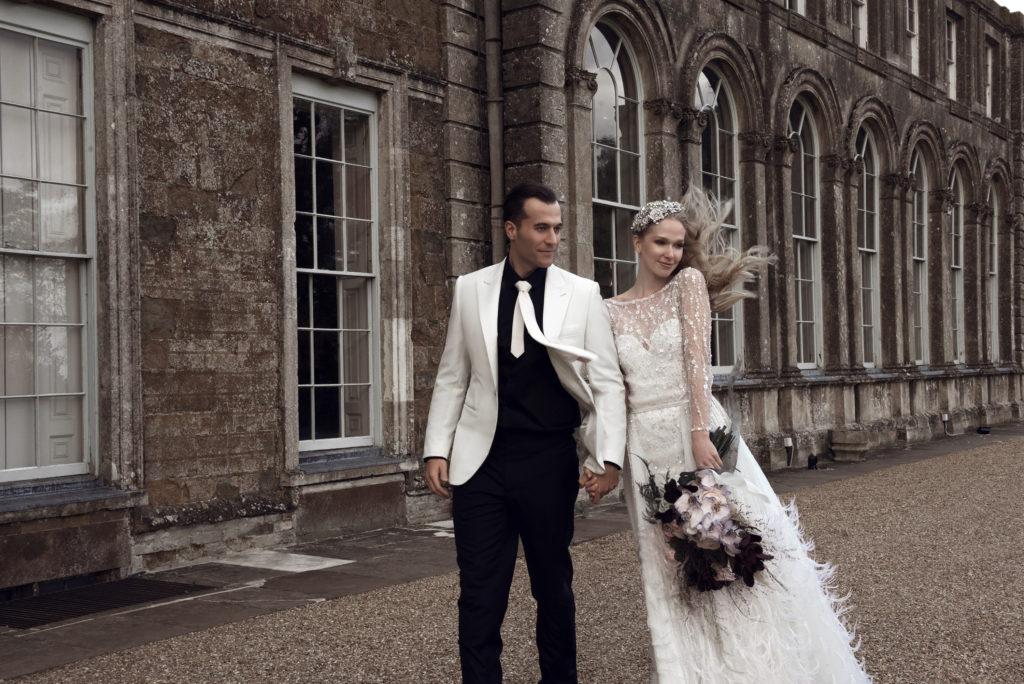
Same Sex Marriages
As of 2014, same sex couples can legally marry in civil and religious ceremonies in England and Wales. For the latter, the religious organisation needs to have ‘opted in’ to conduct such ceremonies and the minister of religion must agree. This bill that was passed in 2014 also enables civil partners to convert their partnership to a marriage, if they wish, and enables married individuals to change their legal gender without having to end their marriage.
The UK also offers civil partnerships for same sex couples, which have similar rights as marriage in terms of pension rights, house ownership, inheritance issues and ‘next of kin’ decisions in hospital. As with marriages, you must give at least 28 full days’ notice to your local register office, and bring along the same documentation. The main differences are: it’s not compulsory to have a ceremony to form a civil partnership, as long as you both sign the civil partnership document; civil partnerships are not recognised everywhere in the world; adultery doesn’t count as grounds for ending a civil partnership; civil partnership certificates include the names of both parents of the parties, while marriage certificates still only contain the father’s name. You can have a look at a more detailed comparison at the Gov.uk website.
The structure and legal requirements of a civil marriage ceremony is the same for all couples, same sex and heterosexual.
Sadly, there are still some limitations as to what can be done if you are a same sex couple:
- You cannot currently marry in the Church of England or Church of Wales
- You cannot currently marry in Northern Ireland – though you can register a civil partnership
Hopefully this will change soon – I’ll update this blog post if so!
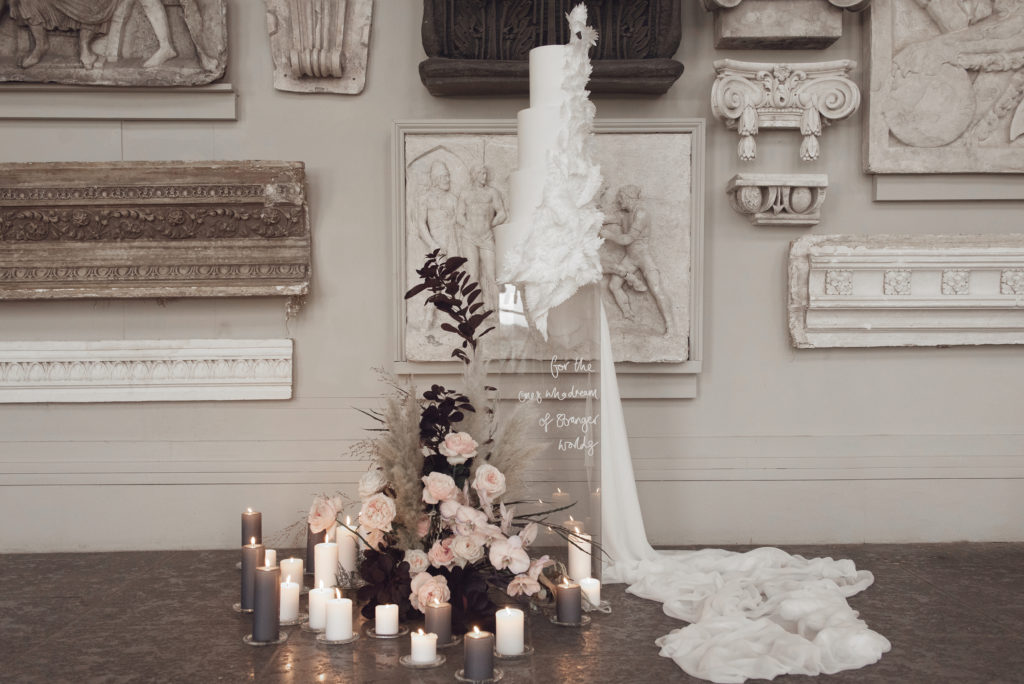
Extra Considerations for Foreign Nationals
Different rules apply to anyone from outside the European Economic Area or Switzerland, and vary based on the couple’s situation. It’s definitely worth investigating a little bit further if that’s the case for you – you can check here for more info from the official UK government website.
If you’re both from outside the European Economic Area or Switzerland, you must apply for a Marriage Visitor visa to come to the UK to get married, even if you don’t intend to live there afterwards (and even if you don’t normally need a visa to visit the UK). The earliest you can apply is 3 months before you travel, and you should get a decision on your visa within 3 weeks. To find out more about these, have a look here. If one of you is from the EEA or a British citizen, visa requirements will vary, so will depend on your specific circumstances and on your future plans.
The 7-day civil marriages residency criterion that I mentioned earlier that is needed to give notice in the UK can still be fulfilled by foreign nationals, but just requires a little bit of forward planning. If you don’t already live in the UK, you would need to set up a temporary residency in any registration district in England or Wales in order to fulfill the legal residential requirement. Keep in mind that this is defined as seven full consecutive days and nights immediately prior to the day you attend to give your notice of marriage, and that you will be expected to provide proof of your residency; for foreign nationals, this could mean staying in a hotel for at least 7 nights, and then making sure you have plenty of proof that you have been in the country (such as flight details, hotel receipts/invoice, or a letter from the hotel). When giving notice, all of the same documentation must be provided, but, if you or your partner is from outside the EU, EEA or from Switzerland, you’ll also need to bring along a passport sized photo for each of you, proof of your current immigration status (for example, your visa), and a translation of any documents that are not in English.
This process differs slightly from England to Scotland to Northern Ireland, so check with the municipality where you plan to marry. If you live outside of the UK and you want to marry in Scotland you need to get a certificate from your country to say there’s no reason why you can’t be married (unless you’re a UK citizen living abroad, in which case there’s no need). This certificate needs to be given along with your marriage notice to the registrar at least 29 days before the wedding. If one or both partners are from overseas, special rules may apply to marry in Northern Ireland as well – so contact the register office early.

Costs
Costs for each of the different processes I’ve described above will vary wildly of course, and may also depend on your specific circumstances. I’ll go through some of the ballparks below, so you have an idea what to expect and what to include in your budget.
Firstly, if you need a visa to enter the UK to get married, keep in mind that fees vary by country and by visa type. This visa fees guide can help you determine what these costs might look like.
A fee of £35 will apply when giving notice, or slightly more if you’re not both UK nationals. If you’ve had a divorce, annulment or dissolution granted outside of the UK, Channel Islands or Isle of Man, you’ll have to pay a fee of £50 for the local register office to check your documents or £75 if the General Register Office needs to check them. Your marriage or civil partnership certificate costs £4 on the day of the event or £10 after. I would definitely advise obtaining at least one copy on the day, as you’re very likely to need to prove your marital status in the future.
For the civil ceremony itself, the cost is £46 if you have it at a register office, £86 at a registered religious building, or may be different at other approved premises.
For religious ceremonies, this will depend on the church you’ve chosen. For Church of England, this usually amounts to around £500 (which covers the expense of reading of the banns, the certificate, the vicar, and the use of the church itself). Some churches may charge extra for organists, bells, additional heating, and so on. For Catholic churches, the cost will vary as it’s not set on a national level – typically depends on the size of the church, the facilities, and so on, and is more of a “donation” structure. This typically ranges round £200, not including the marriage course, choir, bells, and so on. As the Roman Catholic Church is not the state church, you’ll need to check with your priest whether he is a registrar or not. Not all priests are, and if he isn’t, you’ll need to factor in the cost of having a registrar present as well (see paragraph above).
For a humanist ceremony, you will have to pay your celebrant a fee as they operate independently. This varies from around £500 to £1,200, depending on factors including the time commitment to the celebrant, location, and more. Just like all your other wedding suppliers, the celebrant will have priced their services according to their business expenses.
If you’re in a civil partnership and want to convert it into a marriage, you can do so in England, Wales and Scotland. The cost is £4 for a marriage certificate, £45 for the conversion and £27 for an appointment if you’re having a ceremony – though the cost of the ceremony will depend on the venue.
Of course, these costs only cover the basic legal requirements, and not any of your suppliers, decorations, venues, and extras – which of course vary depending on what your vision for your celebrations is.

I hope this has helped clarify the legalities, process, and paperwork involved in getting married in the UK, and saved you some precious time in your research. As I mentioned earlier, many of these are guidelines which can vary depending on your specific circumstances, so definitely take some time to reach out to the local authorities, whether legal or religious. The best approach is to start this process with plenty of notice, so that even if there’s an unexpected step to carry out, you still have plenty of time ahead of your wedding day to dot all the i’s and cross all the t’s.
Wherever you are in the world, if you’d like to have a chat, or would like any support in planning or styling your wedding in the UK, don’t hesitate to get in touch!
Yours,
Valentina
All images in this blog post are by Emma-Jane Lewis Photography, styled by The Stars Inside, and located at Aynhoe Park.
